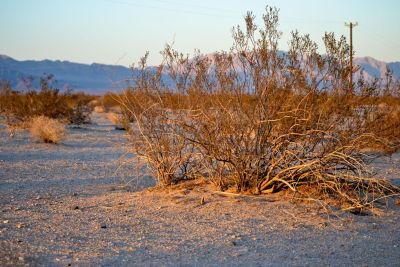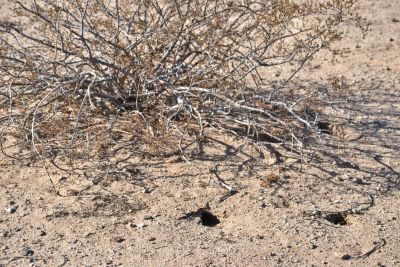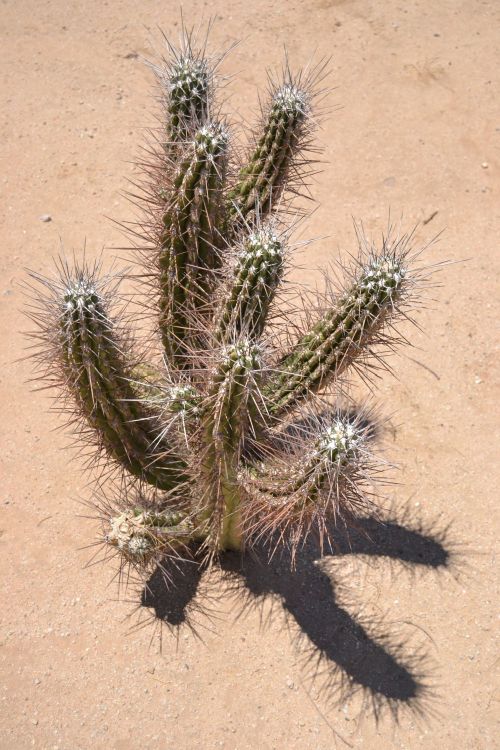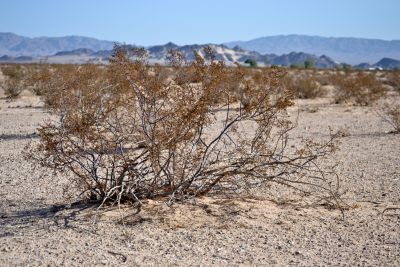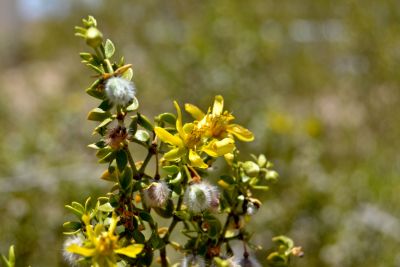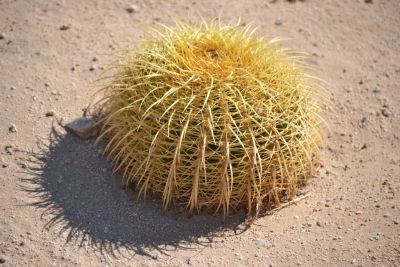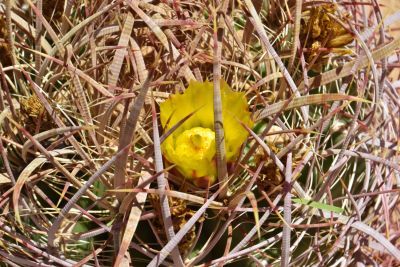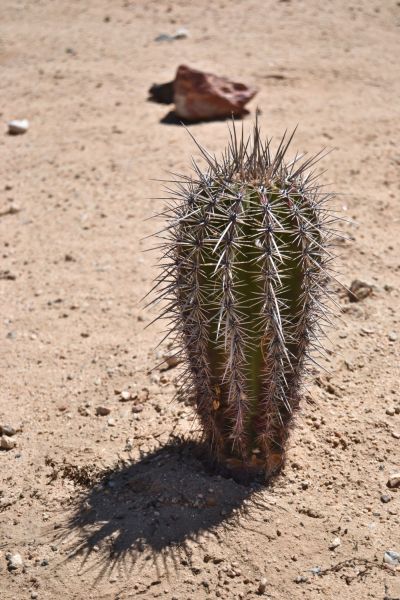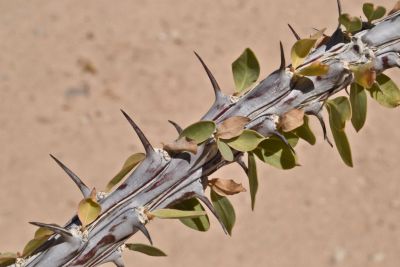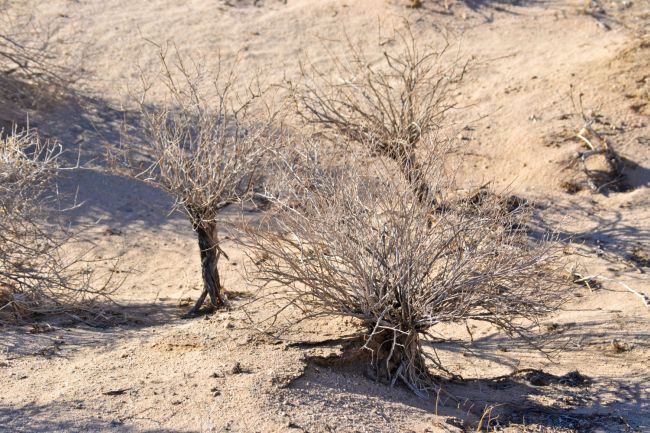Wonder Valley: June 2012
Page 2: But The Land Was Not Left Wholly Barren.
Upon the twice-burnt land, the creosote plant, which was a righteous plant, did not flee. Instead, it abided in its place, and did not forsake the land. And because it had not forsaken the land, the creosote plant did dwell upon the twice-burnt land without becoming burned itself.
And the creosote plant which did not forsake the land captured the dust that was carried upon the wind and captured the sand that was blown upon the wind.
And as the creosote plant captured the dust and captured the sand, it placed them beneath itself as an island of refuge for the meek, because it was the most righteous plant. And therebecause it being an island of refuge, the creosote created a place of mercy that could be dug into, and that could be burrowed beneath. And in this mercifulness, there beneath the most righteous creosote plant, no rock and no stone abided, and so it was that the meek burrowed respite into the land and abided there beneath the righteous creosote plant, themselves unburnt.
And upon the land there was also the cactus plant which had captured the spirit of the water, even as the spirit of the water was moved to quit the land. And the cactus plant, which was also a righteous plant, had savored the spirit of the water within itself, offering it succor. And the cactus in its righteousness protected the spirit of the water within itself behind a rampart of thorns, and of spikes, and of spines which therefore would draw blood from any who might covet or seek to take away the spirit of the water which did not belong to them, away from the righteous cactus plant.
And upon the land were there other plants which had grown and which had flourished and which had all remained upon the burnt land without becoming burned themselves.
And all of the plants, the righteous plants and the other plants, would give nectar in their share and in their time, and so it was taken, and so it was done.
And as the creosote plant captured the dust and captured the sand, it placed them beneath itself as an island of refuge for the meek, because it was the most righteous plant. And therebecause it being an island of refuge, the creosote created a place of mercy that could be dug into, and that could be burrowed beneath. And in this mercifulness, there beneath the most righteous creosote plant, no rock and no stone abided, and so it was that the meek burrowed respite into the land and abided there beneath the righteous creosote plant, themselves unburnt.
And upon the land there was also the cactus plant which had captured the spirit of the water, even as the spirit of the water was moved to quit the land. And the cactus plant, which was also a righteous plant, had savored the spirit of the water within itself, offering it succor. And the cactus in its righteousness protected the spirit of the water within itself behind a rampart of thorns, and of spikes, and of spines which therefore would draw blood from any who might covet or seek to take away the spirit of the water which did not belong to them, away from the righteous cactus plant.
And upon the land were there other plants which had grown and which had flourished and which had all remained upon the burnt land without becoming burned themselves.
And all of the plants, the righteous plants and the other plants, would give nectar in their share and in their time, and so it was taken, and so it was done.
